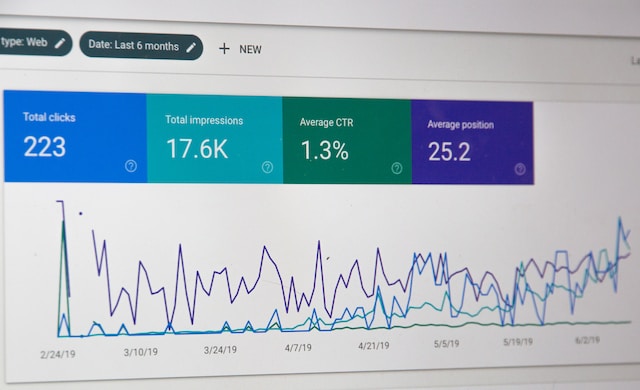We use proven International SEO strategies so visitors in your target countries find, and engage with, your website and business
Our tried and tested International SEO process is backed up by 15 years’ experience working in companies of all sizes from international Fortune 500 corporations to SMEs and startups. We have the technical skills and expertise to ensure your website is structured in the most effective way and has the right marketing strategy for an international audience. We track rankings across any country in the world.
Too often we see websites not working to reach the target international audience. Or businesses that don’t know how they rank in search results in different parts of the world. We can fix that! How your website is designed and built is crucial to the success of SEO on a global scale. We advise on the best approach and implement changes too. If the website is not right then marketing effort is being wasted.
Crucially, we recommend solutions but also guide you through the process of implementing those solutions to fully optimise your website for an international audience.
Get in touch today to find out how we can improve your International SEO and reach you international audience.
Call us on 01494 530233
Email us at contact@dittodigital.co.uk
Here are just some of the areas we focus on:
- Intuitive URL structure so visitors can navigate easily.
- Provide a clear option to switch between languages/countries.
- Backlinks to country-specific pages from sites in the same country.
- Backlinks to language-specific pages from same-language content.
- Language meta tags to show which languages are catered for.
- Country meta tags to show which countries catered for.
- Monitor search rankings in multiple countries and languages.
- Monitor search rankings in a range of search engines.
- Provide content that is relevant for each country.
- Provide content in a range of languages where necessary.
- Show opening hours in the appropriate time zone.
- Show prices in the appropriate currency.
Ditto Digital Solutions Deliver Real Commercial Results
To gain the level of online visibility in search rankings that will have a commercial impact requires ongoing, continuous improvements at a more advanced level which will impact performance in organic search and drive sales growth across the globe.
The advanced SEO techniques we use to support an international SEO strategy include: international keyword research, bespoke schema (structured data) markup, Core Web Vitals tests and improvements, speed performance improvements and more.
The objectives of an international SEO campaign are:
-
Perform in-depth analysis to identify who your ideal customers are, where they are based and what they are looking for online.
-
Research (and create, if required) relevant content to demonstrate your expertise on your website, in order to build trust and credibility with online audiences around the world. Our professional copywriters create content aimed at people in specific international markets important to your business.
-
Our search engine optimization experts ensure your website can be found easily online in all of your target countries. We monitor rankings in the search listings in multiple locations for a specific country or city, where required. We have experience with language targeting audiences internationally. Ask to see one of our international SEO case studies for more information about how we have helped organisations just like yours reach new international markets.
-
Make recommendations to improve user experience on the website for all users in order to increase engagement rates and conversion rates.
-
Build relationships with online publishers in multiple countries around the globe in order to create valuable backlinks relevant to your internationally-focused content in order to further boost international SEO rankings for important searches in the countries that are important for your business.
The basics of targeting international audiences
When designing and marketing a website to better convert international visitors you need a strategy that engages an international audience without alienating UK visitors who are still an important audience.
The first point to note in an international SEO strategy is that as far as the human visitor is concerned it should be a seamless experience and they should easily reach the pages and content appropriate to them without jumping through hoops. Fortunately, it is pretty straight-forward to automatically detect a visitor’s location via their server location – either by country or region – and also their language.
Designing a website for specific countries
Simple considerations like currency and time zone are important to visitors even when they speak the same language as the primary language used on your website. So if a UK-based company has a significant number of customers in other English-speaking countries like Australia, New Zealand, South Africa, Ireland, Canada or the USA it makes good business sense to show the relevant currency for your products and services to a geographically targeted audience.
For an effective international SEO strategy, you may even want to use, for example, American-English spellings and terminology to better connect with specific visitors from around the world.
Other languages and cultures
When it comes to other languages and cultures it is even more important for an international SEO approach to consider how your company connects with those visitors in a specific language in global markets. Focus on locally relevant topics, relevant images that will resonate with the viewers and professionally translated text content and videos with accurate subtitles or professional voice-overs in the focus languages. Use native speakers to do the translations using a country’s official language in addition to any languages spoken regionally or popular dialects.
Be aware of search volumes in each different country and language targets. Check them on local search engines as well as on the dominant search engine for your target market. Use the Google Keyword Planner for international keyword research to find the best keywords for Google searches and check other international websites for relevant keyword data and their search volumes.
Creating a better experience for everyone
Creating a better experience for all visitors makes international SEO efforts more effective in international search engines, help increase conversions and grow your business. So you need to carefully define the countries and/or languages then create a website structure that is clearly segmented for different audiences with content tailored to those different audiences. If the top-level domain (TLD) is not an international one then consider changing it and redirect the original URL to the new one.
For instance domainname.com might be a preferred URL for international visitors than domainname.co.uk but, on the other hand, if your domain does not suggest any particular country then it could be left as is.
Creating the right website structure
Once the countries are established you will need to structure the website in a way that easily accommodates each distinct country. The two most common options for doing this are:
-
Use sub-domains for each country e.g. us.domainname.com, nz.domainname.com etc.
OR
-
Use sub-directories for each country e.g. domainname.com/us, domainname.com/nz
If the website also needs to contain content in languages other than the primary language this can additionally be achieved with the use of language tags on pages containing content in each target language.
Whatever approach is used it’s important to ensure that the URL structure has a logical and intuitive structure so that visitors can navigate it easily to find what they are looking for. The most successful type of international online marketing presents visitors with content, products and services relevant to their location, their currency and their language.
Once these essential elements are in place the next step to targeting international visitors is the digital marketing. So let’s have a brief look at the most important aspects of international search engine optimisation.
International SEO – What Factors Are Important?
All search engine optimisation involves fundamentally the same process with on page SEO and on-site content being major factors in organic search success. In this section, created by our international SEO experts, we will look at other important aspects.
External signals are also important, such as local links with a link building strategy that takes account of the language spoken in the location of the linking domain. It is even more important for an international SEO strategy to conduct Keyword Research and take account of local language target, local search volume and a local audience.
The difference between local and international SEO is that on-site content is designed for different audiences (either via language, currency, terminology etc) and external signals to each audience segment should preferably be localised. Because backlinks to a page designed for Spanish or Spanish-speaking audiences, for example, will carry more SEO value if they come from a Spanish website than from, say, a UK website – all other authority factors being equal.
Aside from the URL structure, what are the other important factors for optimising a website so that Google, and other search engines, can determine the countries and/or languages being targeted and, therefore, show your web pages to your ideal audience?
Click Here To Read More…
International SEO strategy best practices
-
For each target language provide content in that language on dedicated URLs.
-
Ensure page titles and meta description are in the same language as the page content – these appear in the organic search listings.
-
Use professional translators for the content to ensure appropriate terminology is used.
-
Consider cultural differences in terms of layout and style eg not all languages are read from left to right.
-
Consider cultural differences in terms of the images used on the site – visitors want to see familiar types of images. Be aware of cultural sensitivities when selecting images.
-
Ensure common parts of the website including menus and contact details are available in all target languages. Use local phone numbers where relevant and appropriate.
-
Provide a clear option to switch to the primary language of the site or to an alternative language so the process is simple and seamless for all visitors.
-
Show opening hours in the appropriate time zone. Make it clear when phone lines are open too as many global businesses keep their phone lines open outside of normal business opening hours in certain regions.
-
Place external links on your own country or language-specific pages that link out to content in the same country or language.
-
As part of your link building strategy, build backlinks to your country and language-specific pages from sites in the same country or language. Link building to website pages should focus on boosting search results for a specific country.
-
Use language meta tags (hreflang) on all primary and foreign language pages to clearly show which languages your site caters for and to indicate that alternative pages are available in different languages.
-
Remember Google isn’t the only search engine so monitor rankings and perform competitor research on other search engines where they are dominant for your target country or language. Nevertheless, Google Analytics and Google Search Console can be used for research for country targeting as they still provide useful information that is not specific to the search engine used.
Following these simple best practices ensures a good user experience for all visitors comprising your whole audience and has the added benefit of informing search engines that your website and business cater for international viewers. Making it more likely that pages will rank highly in organic search listings.
International SEO is vital for success globally
If your business has a global expansion strategy then the right international SEO approach is vital for success overseas. And the reason it’s important is that what works for you now in your home country may not necessarily work well internationally.
In this section, created by our international SEO experts, we will cover all the important aspects of how to create an international SEO strategy so your website performs in other countries and conquers new markets.
Click Here To Read More…
The advantages of an international website
Creating a website aimed at international visitors involves both risks and costs, but the advantages outweigh those risks and costs. Assuming your international SEO strategy is successful and you reach your international market your business could grow exponentially.
Some of those advantages when you implement international SEO successfully are:
-
Increase revenue via a larger customer base;
-
Become a globally recognised brand to increase credibility;
-
Diversify your target markets to spread risk;
What is International SEO?
International SEO is the technique used on a website that enables search engines to identify which countries you want to reach (and in which languages) and encourage then to present your website in their search listings. It is simply optimizing for a range of countries and languages.
If you check Google Analytics you may find that you already have visitors from other countries because you are naturally ranking for certain pages in those regions. If those countries are your target market then you have already crossed the first hurdle. Remember that Google Analytics and Google Search Console can be used for research for country targeting as they still provide useful information even if Google is not the most common search engine used in target regions.
Defining the International SEO Objectives
When organisations want to expand into international markets, it is essential to clearly define what the goals are. There may even be different goals for different locations. For a successful international search engine optimization strategy all the aims must be clear and agreed by all the relevant stakeholders. After all you can only measure the level of success if you know what success looks like. Here are some of the potential different objectives:
Country specific
Usually used when expanding to countries which speak the same language e.g. expanding from the UK to Ireland, Australia, New Zealand, South Africa, USA and Canada. Content can most likely be the same, although not always if different rules and regulations, for example, impact the products or services your business can offer in different regions. The currency and time zone will, of course, need to change for local web visitors.
Language specific
Often used to reach nearby countries (for ease of shipping for B2C companies in particular) e.g. expanding from the UK to near neighbours in Europe would require local language pages, products descriptions and informational content.
Hybrid approach
Finally a hybrid approach may be the objective, where you might reasonably assume that searchers from a certain country might search in English even if that is not their first language. For example, searchers in Hong Kong, Singapore or Dubai looking for advice on buying a property in the UK. The advice they are looking for needs to be specific to them since they are not UK-residents. However, the language expectation might still English because they are looking for local advice and knowledge.
More about International SEO
Keyword differences between regions
Even if your website already attracts visitors from other countries, the chances are that the same content, for the same keyword search, will appear in a different position. This is because the page, and the website as a whole, is only optimised for one location.
Other important factors impacting the different positions in the search engine results pages (SERPS) in different countries could be: the search engine used, the search volume of keywords, the relevance of keywords and the way users search.
Differences within common languages
Even countries with a common language use different structures, expressions, vocabulary and spellings. Each of these can be a separate ranking factor and they all have to be considered to achieve consistently high rankings across all areas.
That’s why content needs to be created specifically for a particular audience if you want to reach them in any significant volumes.
Unique content across countries
Even for international SEO, the same rules apply when it comes to high-quality content that informs, educates and entertains visitors to a site. If you have been running a local SEO campaign for some time you will already know which content your visitors prefer.
It may not necessarily be the same in other countries but starting with your most popular topics from your home country is a good place to start. You can experiment and build on that data for a new international content campaign.
As you build up your international SEO strategy you will gain more knowledge about a wider audience. That will allow more analysis and provide more points of comparison to boost all of your SEO efforts and international SEO work, including link building.
The hreflang attribute
Hreflang attributes enable Google and other search engines to identify the particular URL on a website that should be shown to visitors based on their language and geographic location. Setting these tags correctly on foreign language pages or country-specific pages will ensure visitors are automatically directed to the most appropriate page.
When people land on a page that is highly relevant to them, they are more likely to engage with the content there, start to recognise your brand (if it is new in their location), and there is a better chance of them converting. That’s assuming the landing page is optimised for conversions.
Conversion Rate Optimisation is a whole topic in it’s own right that should form part of your digital marketing strategy. Read our guide to Conversion Rate Optimisation here.
Content marketing for international SEO
Once you have defined a clear objective, the next step is to list each country you want to reach and identify your main competitors in those countries. There are plenty of international SEO analysis tools like Ahrefs or Majestic SEO that can do this analysis for you.
Once you know which competitors are ranking in the Top 10 for your priority keyword clusters/groups then you can do some simple market research and review their content and create something bigger, better and totally unique to outperform them.
Remember, if you need the new content translated because you are language targeting an audience in different languages never use automatic translations tools. They are much better than they used to be but not yet good enough for native speakers.
Important technical factors
If you are targeting different countries then you could, in theory, acquire new domains with the top-level domain of those countries so that search engines immediately recognise you are targeting those countries. But this is not recommended because each domain would have a separate website and need to be run as a separate project. Having multiple websites would massively increase workload for your web developers and cost for your business. Plus and new domain would start with zero domain authority and require a separate link-building programme.
Better options:
-
Subdirectories: where location-specific or language-specific content is placed in a specific subdirectory of the root domain, essentially inheriting the domain authority of the main website. For instance, www.dittodigital.co.uk/nz
-
Subdomains: where location-specific or language-specific content is placed in a subdomain such as nz.dittodigital.co.uk. Subdomains are independent from the main website but can inherit some of the domain authority.
Features to use with these options:
-
Parameter: where a URL modifier alters the page content based on the searcher’s geographic location.
-
Hreflang: an attribute that enables search engines to identify which page should be shown to the searcher, based on the language of their search and their location.
Different competition
When you’re developing an international SEO strategy you will be competing for top rankings in different search engines against different competitors. Some of these brands may be global organisations that have had an international SEO strategy for years. However, don’t lose heart because one of the best things about SEO (international or local SEO) is that done properly it helps smaller companies compete in organic search with much larger brands. You just need to pick your battles carefully and do thorough competitor research.
More content
International SEO efforts will require more content – either translated into different languages or localised for other reasons. So be prepared for the extra effort in terms of keyword research, content marketing and content creation.
Higher costs
It’s fairly obvious that an international SEO campaign will require a larger budget because of the wider scope of the work. From keyword research to different search engines and country targeting – every aspect of the project will require more effort. However, the potential rewards are equally much higher if you get the strategy right.










